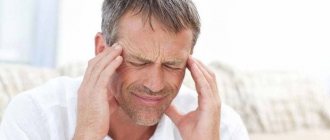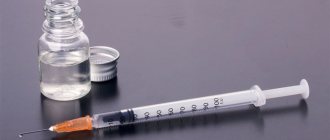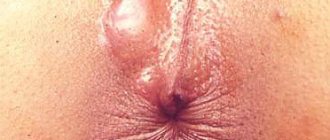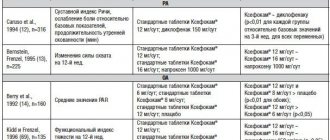Testosterone is a hormone produced in the testicles, or more precisely, in Leydig cells. At the same time, in the Sertoli cells, again, which are part of the testicles, the process of sperm formation takes place. Thanks to the coordinated work of these structures, normal sexual and reproductive functions of a man are ensured.
The production of testosterone is controlled by the pituitary gland, a small organ whose dimensions are similar to the size of a pea. Luteinizing hormone (LH) is responsible for the production of testosterone.
The importance of testosterone for the male body
Already in the seventh week of development, testes - gonads - are formed in the male embryo. After two weeks they begin to produce testosterone. When the transition period begins, testosterone levels in the body increase sharply. It is thanks to this that the boy gradually becomes a man. Under the influence of this hormone, the active development of male genital organs and the appearance of secondary sexual characteristics occur, which are characterized by hair growth in the pubic area, body and face.
Thanks to testosterone, protein formation is initiated in various tissues - primarily in muscle. The more of this hormone, the more actively they develop and the stronger they become. In this case, it is difficult not to remember athletes who take anabolic steroids to develop muscles.
Testosterone also affects the normal distribution of fat in the body, the formation and maturation of bone tissue (it is responsible for the timely closure of the bone growth zone). The work of the sebaceous glands is regulated by the amount of the hormone, and it also contributes to the thickening of the vocal cords during puberty, which is expressed in the appearance of a low timbre. In general, testosterone has a direct impact on the appearance and voice a man “gets.”
The list of important functions of testosterone does not end here. It affects almost all body systems, including:
- Cardiovascular. Slows down the processes of atherosclerosis, reduces the manifestations of coronary heart disease, prevents the development of cardiac hypertrophy, and activates the expansion of coronary vessels.
- Central nervous. Affects the ability to navigate in space, memory, attention, speed of thinking, mood (at an increased level it provokes aggressiveness, at a low level it provokes depression). Has an antidepressant effect.
- Urinary . The condition of the prostate gland largely depends on it.
- Hematopoietic . It affects the maturation of red blood cells in the bone marrow.
- And almost the primary function of testosterone is the emergence and maintenance of sexual activity . Due to the fact that it stimulates certain areas of the brain, sexual desire occurs (not only in men, but also in women).
Testosterone also ensures normal erections. It has been verified that under its influence the corpora cavernosa relax and the vessels of the penis are well filled with blood.
What is estrogen?
Estrogen is a class of related hormones that includes estriol, estradiol, and estrone.
Estriol is produced from the placenta during pregnancy. It is the main sex hormone in pregnant women. It is formed from developing ovarian follicles.
Estradiol is responsible for female characteristics and sexual functioning. In addition, estradiol is important for bone health in women. Changes in estradiol levels contribute to the development of most gynecological problems, including endometriosis, fibroids and even female cancers.
Estrone is widely distributed throughout the body. This is the main estrogen present after menopause.
Signs of testosterone deficiency
The importance of testosterone cannot be understated. It affects the condition of the body, and therefore its lack can lead to extremely adverse consequences. You can suspect a hormone deficiency based on the following symptoms:
- deterioration of attention, decrease in concentration;
- decrease or disappearance of libido;
- erection problems;
- increased fatigue;
- decreased strength, decreased muscle mass;
- reduction in the size of the prostate gland and testicles (they acquire a soft consistency);
- hot flashes;
- decreased level of red blood cells, causing anemia;
- brittle bones (osteoporosis);
- infertility caused by a decrease in sperm count.
Also, a decrease in testosterone concentration affects the psycho-emotional state of a man, leading to depressed mood, blues, and depression.
What are hormones?
The content of the article
A hormone is a chemical substance. It is secreted by one tissue and travels with body fluids to affect other tissues of the body. Essentially, hormones are “chemical messengers.” Many hormones, especially those that affect growth and behavior, are important for both men and women.
The amounts and levels of hormones change daily. The sex hormones, estrogen and testosterone, are secreted in short bursts—pulses—that vary from hour to hour and even minute to minute.
The release of the hormone varies between night and daytime and from one stage of the menstrual cycle to the next.
Why men's testosterone levels may decline as they age
Scientists have found that, starting from about 30 years of age, testosterone levels begin to decline - by about 1-2% annually. By the age of 50-55, and sometimes earlier, testosterone levels can reach only half of the concentration that was in the body at a young age.
Also, the amount of a special protein in the blood gradually increases, which binds sex hormones and thereby reduces the content of biologically active testosterone. This condition is called age-related hypogonadism.
The amount of sex hormone in older age largely depends on a number of genetic factors, as well as diseases of internal organs.
Men need all vitamins, but vitamin D is extremely important
Vitamin D is necessary for the production of sex hormones, especially testosterone. If the body is deficient in testosterone, muscle development is impaired, muscle mass remains low, and libido decreases.
Around the age of 30, testosterone levels in men tend to decline. Some women think that this is impotence, but in fact it is often only a deficiency of vitamin D, and as a result, a drop in testosterone. In the male body, a lack of testosterone produces symptoms such as decreased desire for sex, erectile dysfunction, depressed mood, memory problems, attention deficit, hair loss, and lack of energy.
Testosterone deficiency
A lack of vitamin D causes general weakness, fatigue, dizziness, a tendency to depression, an increase in colds and a weakened immune system. The good news is that the body naturally produces vitamin D when exposed to direct sunlight. All you need to do is spend 10-15 minutes a day in the sun without sunscreen and, lo and behold, your body will receive the required amount of vitamin D. The bad news is that we live in a country where the sun rarely pampers us. What to do then?
Vitamin D can also be obtained by taking dietary supplements and eating certain types of foods. It is recommended to consume 5 mcg of vitamin D per day.
Vitamin D content in 100 g of different products:
- herring - 27 mcg;
- salmon - 26 mcg;
- egg - 2 mcg;
- butter - 1.2 mcg.
So, the best natural source of vitamin D is fatty fish. Just two servings of this fish per week will provide enough vitamin D in the body.
The best natural source of vitamin D is fatty fish.
The amount of testosterone in the body is increased not only by vitamin D, but also by another mineral - zinc. Zinc plays an important role in the process of testosterone production. This mineral can be obtained from foods such as oysters, protein foods - meat, fish, cheese, beans.
Diseases that cause testosterone deficiency
It is known that some diseases (acute and chronic), as well as medications taken in combination with age-related changes, can provoke testosterone deficiency. Such diseases include:
- coronary heart disease;
- cirrhosis of the liver;
- obesity;
- arterial hypertension;
- bronchial asthma;
- obstructive pulmonary disease in chronic form;
- diabetes.
In particular, a decrease in testosterone levels causes chronic alcoholism.
Medicines that affect testosterone levels
As mentioned earlier, certain medications used in the treatment of certain diseases can lead to a decrease in testosterone concentrations. These medications include:
- used for arterial hypertension - prazosin, reserpine, beta-blockers, clonidine;
- affecting the heart - verapamil, antiarrhythmic drugs, digoxil;
- affecting the gastrointestinal tract - ranitidine, cerucal;
- diuretics – hypotazid, chlorthalidone, veroshpiron;
- affecting the central nervous system - sedatives, antidepressants, amphetamines.
It is unacceptable for a patient to decide to self-prescribe medications. This should be done by a doctor, taking into account the possible negative consequences and impact on sexual function.
How to determine testosterone deficiency
Laboratory testing can determine testosterone levels. To do this, you need to take a blood test in the morning (from 7:00 to 11:00). It is during this period of the day that the hormone reaches its maximum levels. Additionally, an analysis for LH, sex hormone binding protein and a number of other studies are required, which the doctor prescribes on an individual basis. In addition, a specialist is able to suspect a deviation in testosterone production based on clinical signs.
There is also a questionnaire designed for a man to self-assess the level of male sex hormones. He needs to honestly answer a number of questions:
- Is there a decrease in sexual desire, lack of desire to perform sexual acts, or a decrease in pleasure from sexual contact?
- Has growth decreased?
- Has your stamina and physical strength decreased?
- Do you have an irresistible urge to sleep after lunch?
- Do you feel like your enjoyment of life has decreased and that all the best things in life have already passed?
- Has the quality of erections deteriorated?
- Has your performance decreased?
- Has your usual energy and activity decreased?
- Have you become uncharacteristically irritable and/or unexplainedly sad?
- Has your ability to participate in sports become worse recently?
Androgen deficiency is possible if the answers to any three questions or questions 1 and 6 are positive.
Preparation for the procedure
Like any planned study, a blood test for testosterone should be carried out outside of acute viral and bacterial diseases, no earlier than two weeks after recovery.
Taking certain medications may affect test results; It is necessary to discuss with your doctor the list of medications used, and perhaps discontinue some of them in consultation with your doctor.
Blood collection should be done in the morning on an empty stomach, after 8-14 hours of overnight fasting. Drinking water is allowed. On the eve of the study, it is recommended to exclude significant physical and emotional stress and alcohol consumption. It is not recommended to smoke at least one hour before the test.
For women, the test is usually carried out 2-4 days after the start of menstruation, unless other conditions are recommended by the attending physician.
How to increase testosterone levels when they are low
Medications prescribed as part of hormone replacement therapy (HRT) can help with this problem. With its help, normal levels of testosterone concentration in the blood are achieved and, thereby, the symptoms of its deficiency are eliminated.
You can undergo all the necessary tests to determine the level of testosterone and other substances related to it in a medical office. A competent urologist-andrologist will prescribe the necessary laboratory tests and interpret their results during the consultation. In case of any violations, an individual drug treatment regimen will be developed for the patient, taking into account indications and contraindications. Only a specialist can prescribe effective therapy that will not cause harm.
Andrologist in Lipetsk: +7 (4742) 90-40-50, and you can also make an appointment online








